Reva & Ronia Levine
Twelve-year-old Reva Levine arrived at the Home with her 10-year-old sister, Ronia, in April 1919 from Fort Worth, Texas.
Reva soon established herself as a leader in the Home, winning election as an officer of the Golden City sisterhood. At the Isidore Newman Manual Training School, too, Reva became an editor of the Pioneer literary magazine and was lauded for having “done much, not only for the good of our class, but also for the good of our school.”
In 1923, following her graduation from Newman, Reva was discharged to an older married sister who lived in Wichita Falls, Texas.
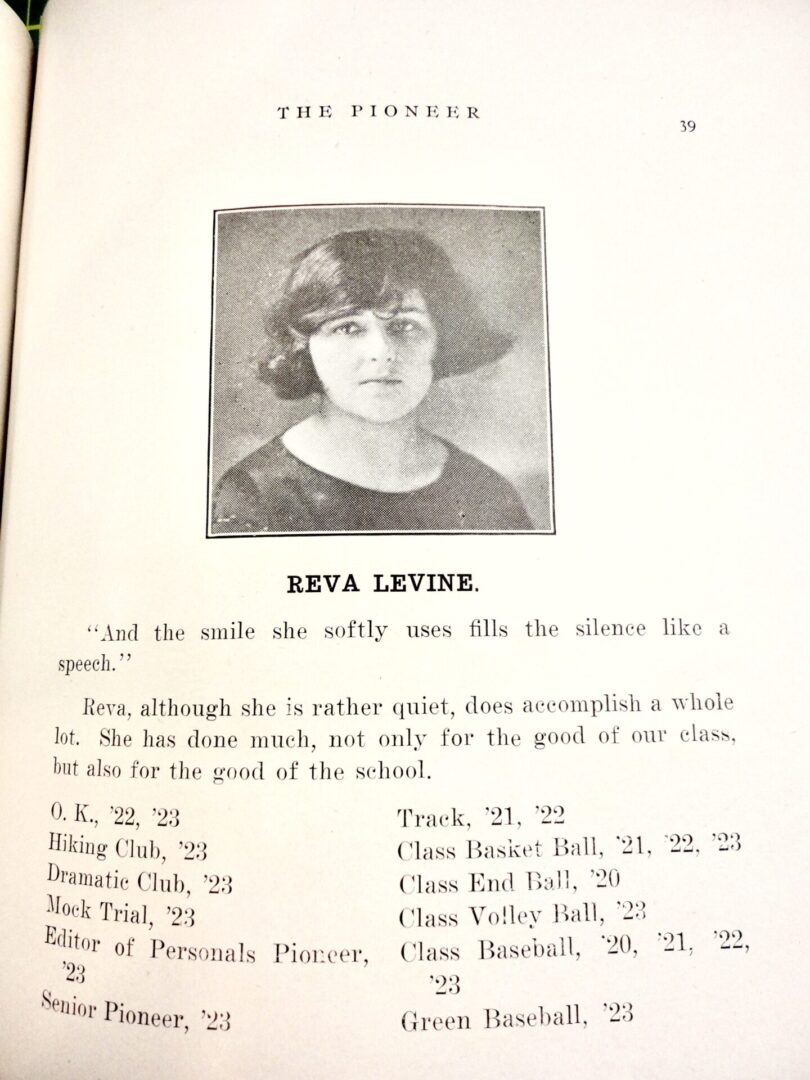
Reva Levine’s senior high school page. Newman Pioneer, 1923.
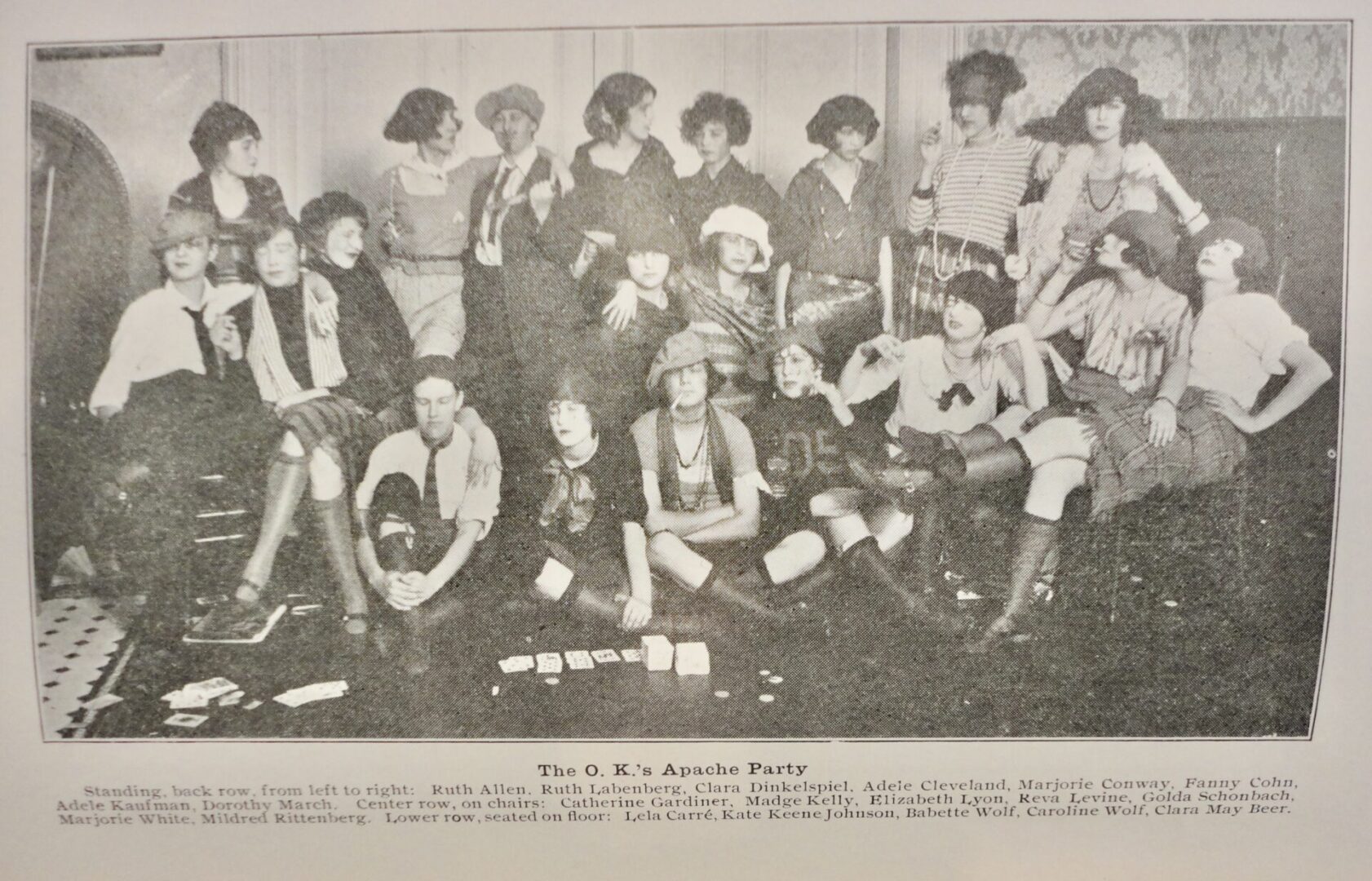
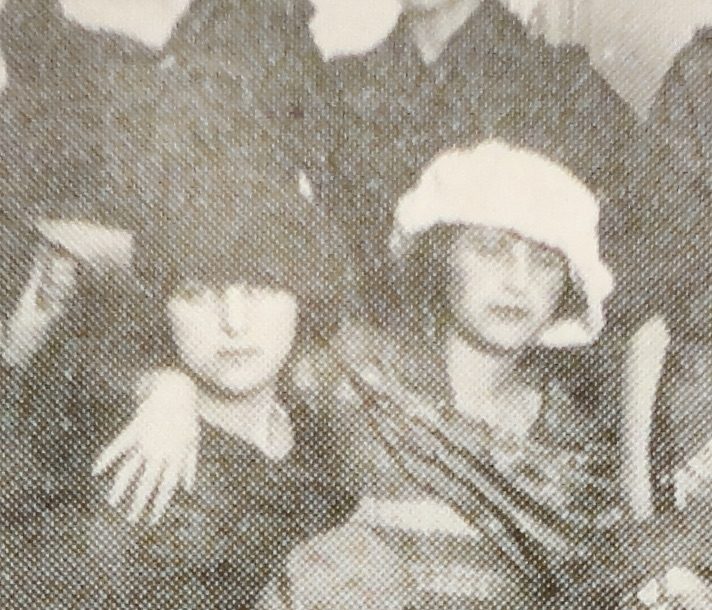
“The O.K.’s Apache Party,” is the description given to the above photo, which appeared in a 1923 issue of the Newman Pioneer, in an apparent reference to the highly dramatic Jazz Age dance known as The Apache. As shown in the enlarged detail, Reva Levine, left, and fellow Home girl Goldie Schonbach, were seated at the center of the boldly attired partygoers.
During Ronia’s time in the Home, she excelled in her studies at Newman School, earning highest scholastic honors when she graduated in 1924. Ronia then moved out of the Home but remained under its care as a non-resident ward while she attended Newcomb College, where she was a member of the varsity debating team. She returned to the Home to take part in its 1925 anniversary celebration, serving as the narrator for the children’s elaborate tableaux performance, “Louisiana in Song and Story.”
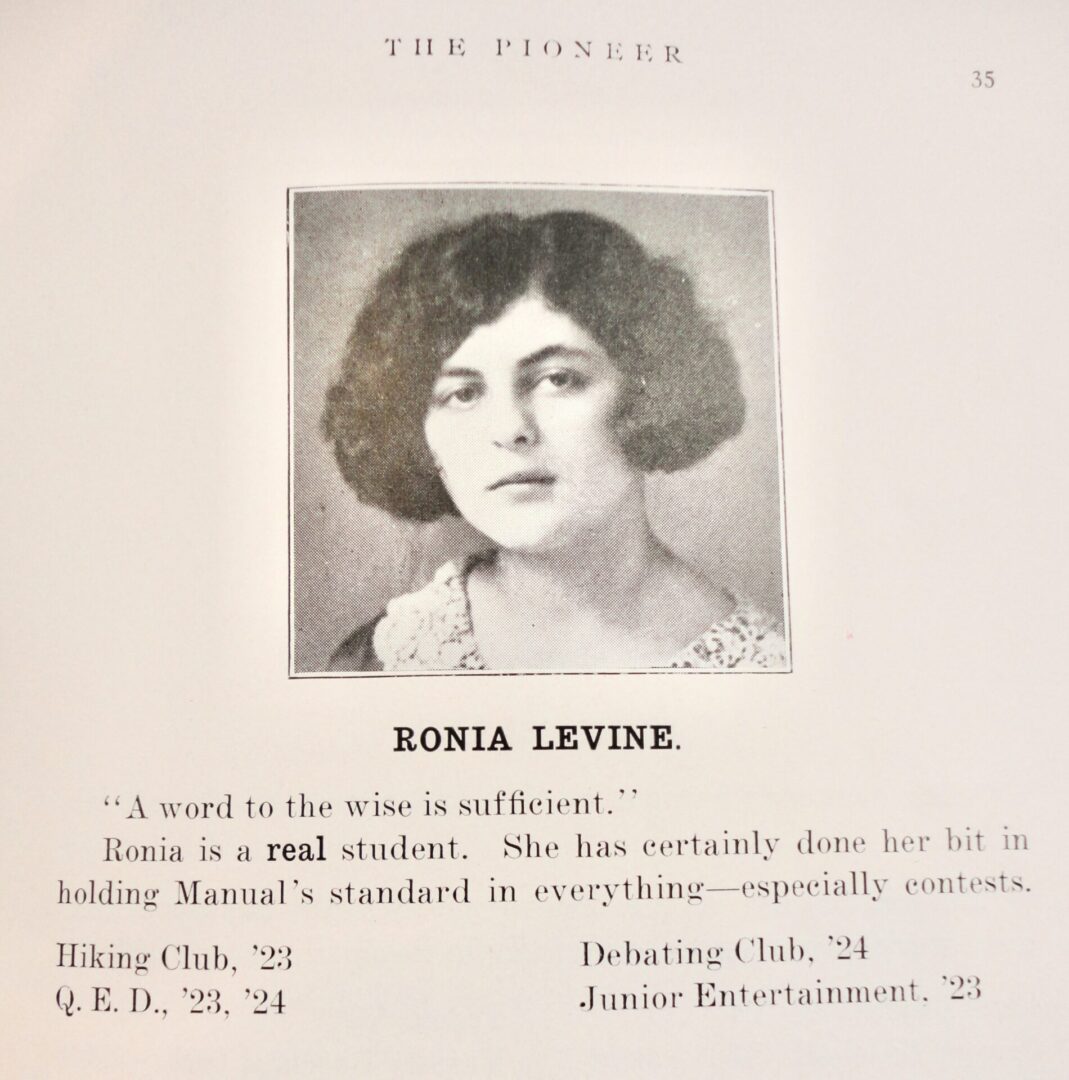
In 1929, after graduating from Newcomb College in 1928, Ronia completed a graduate course at Simmons College’s Prince School of Store Service Education in Boston. She then worked for Macy’s Department Store in New York, on whose behalf she spoke at a 1932 national convention of retail dry goods store managers. Later that same year, she married Israel Solor, a silk buyer for a hosiery company, and soon began working for the New York State Employment Service. In that capacity, too, Ronia demonstrated her public speaking skills:
“The girl without special training is a problem,” declares Mrs. Ronia Solar [sic] of the N.Y.S.E.S. “Opportunities are fewer for the girl with general academic training than the one with precise skills in the operation of office machines, as well as stenography and typing.” Ruth L. Preston, “Don’t Envy Working Girls: Plan How to Be One,” Evening Post (NY, NY), Sept. 26, 1949.
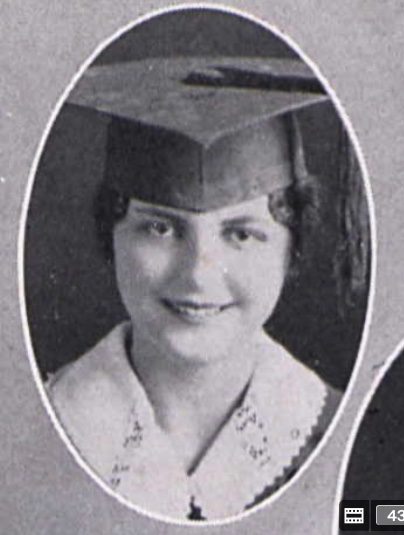
Ronia Levine, Tulane Jambalaya, 1928.
